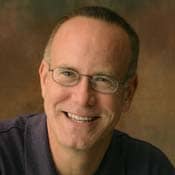Once, an influential church leader came to tell me she was leaving the church because she was unhappy with me as her pastor. (Ouch!) When I asked what I had not done that she wished I had done, she answered simply: "You never sent me a birthday card. I need my pastor to know when my birthday is and to send me a card." In a nutshell, she wanted me to be her friend. I failed at that role.
Handyman
A handyman is a good person to have around when you need one. A handyman is always on call to fix broken things. He (or she, if we're talking about a handywoman) has a wide range of knowledge, though not a lot of depth. He has the tools and the experience to get things working again. Many people see the pastor as a spiritual/relational/emotional handyman. Got a problem with your teenager? Call the pastor. Marriage struggling? Call the pastor. Feeling unhappy about your job? Call the pastor. Struggling with doubt? Call the pastor. The pastor can fix it.
Lots of pastors like being handymen and handywomen. If feels great to be needed. It feels even better to help people get better. People will love and appreciate you if you're a handyman pastor.
Magician
No, I'm not thinking of the illusionists who saw people in half and pull rabbits out of hats. Rather, I'm envisioning real, though fictional, wizards like Gandalf or Dumbledore. These folk have special powers to do all sorts of amazing things. Some people think of pastors this way. They think we have a more direct line to God because of our position. They believe that we can exercise our spiritual powers at will. Once a man in my congregation was talking with me about a memorial service I was to perform for a member of his family. He said, "Then, after your sermon, you can wave your hands and do that magic stuff you do so people can feel better." Usually, I didn't hear this sort of thing so bluntly. But many people thought of me as more than a handyman. I was God's magician.
CEO
Some people in your church expect you to be a CEO, especially if you're the senior pastor of a midsize or larger church. They'll want you to provide visionary leadership and effective management so the church can grow in measurable ways (buildings, budgets, bodies). Or, at least that's what they'll say. If you actually start exercising transformative leadership, odds are you may end up out in the street, without one of those outlandish golden parachutes that soften the fall when secular CEO's are sacked.
There was a time when some of my elders at Irvine Presbyterian were unhappy with my pastoral leadership. They felt fine about my preaching and teaching. They had no problem with my vision, pastoral counseling, or personal ethics. But they were not happy with what they perceived to be my lack of management of my staff. One of my elders, a highly successful businessman and manager, lectured me on my need to be more available to my staff. "I always have my door open," he counseled, "and my reports know they can drop in at any time." "I like that idea," I said, "but there's a problem here. I spend quite a bit of time in my office counseling with people about matters that require a closed door. Plus, I'm supposed to prepare an excellent sermon each week, and that takes study time. I can't always leave my door open." My elder wasn't convinced because he wanted me to function like a CEO, or at least an effective line manager.
Parent
I've saved this model for last both because it is common and because it is so extremely problematic. Many people in your congregation will look upon you as a parent. This is especially true if you are near the age of their parents. But it can also be true if you are close to the age of their children. Pastors are infused with a parental aura.
A year after I arrived at Irvine Presbyterian, a man came to meet with me. He said, basically, "When you first arrived, I didn't want you to be my pastor. I realized that, before you showed up, I always had older pastors and I thought of them as father figures. I liked that because my relationship with my own father was a mess. But you're younger than I am. How could you be my father? I've been struggling to let you be both my brother in Christ and my pastor." This man's openness led to a productive conversation and a long relationship in which I served in the brother/pastor role.
Sometimes, people project their parental "stuff" onto pastors and it isn't pretty. During my first years at Irvine, a major leader in our women's ministry persisted in writing me nasty letters that criticized, not just what I did, but also my motivations. She was convinced that I was using the church as a stepping-stone to greater glory and would soon abandon her and the rest of the congregation. As we met to talk about her unhappiness with me, I asked about her family. Turns out (no surprise) that her father abandoned her and her mother. She had been projecting her experience of her father onto me. (This story has a happy ending. This woman and I became good friends and partners. She ended up moving away from the church several years before I did.)
Conclusion
There are ways in which pastors are, indeed, like ideal pastors, doctors, psychologists, teachers, friends, handymen, magicians, CEOs, and parents. Yet, I believe that people who equate pastors with one or more of these roles will inevitably struggle with who pastors really are and what they're really meant to do. I'll say more about this later. For now, I simply want you to be aware of the cultural models that are relevant in your situation. When your church members and those in your community think about your role, to whom do they compare you?
I'm sure there are other roles and identities against which pastors are compared in our day. If you think of any, please add a comment.





